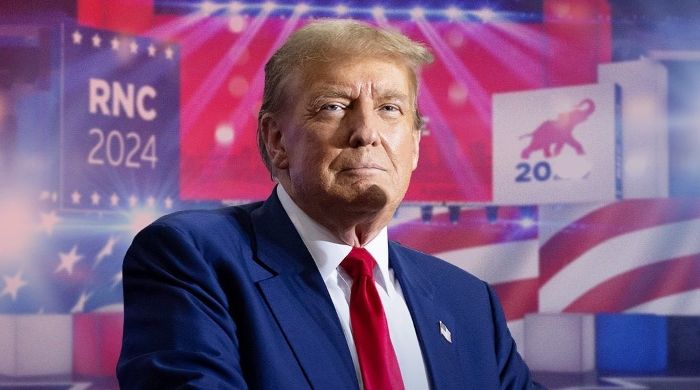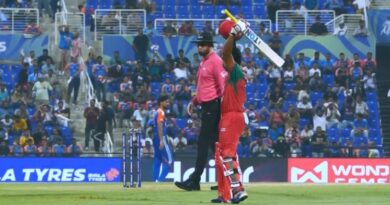Trump Hails Modi as ‘Killer’ Leader, Lauds Pakistan’s Munir as ‘Great Fighter’ in Latest Diplomatic Anecdote
Trump Praises Modi as ‘Killer’, Munir as ‘Great Fighter’ — Repeats Claim of Brokering India-Pak Ceasefire
NewsArc International Desk
Gyeongju, South Korea
In a colorful and controversial address at a luncheon for Asia-Pacific Economic Cooperation (APEC) CEOs here on Wednesday, U.S. President Donald Trump once again claimed credit for averting a nuclear showdown between India and Pakistan earlier this year, while showering praise on both nations’ leaders—describing Indian Prime Minister Narendra Modi as a “killer” and Pakistan’s Army Chief Field Marshal Asim Munir as a “great fighter.”
Speaking to an audience of business leaders amid discussions on global trade, Trump recounted his version of the May 2025 crisis, which he dubbed a near-“nuclear war” sparked by escalating border tensions and alleged aerial skirmishes. “These are two nuclear nations, and they’re really starting to go at it. Seven brand-new beautiful planes were shot down—they were really going at it,” Trump said, echoing unverified Pakistani claims of downing Indian jets during what Islamabad termed “Operation Sindoor.” He claimed his personal intervention—via phone calls to Modi and Pakistani Prime Minister Shehbaz Sharif—halted the hostilities within 48 hours by threatening “250% tariffs” on both countries, preventing a catastrophe that could have “saved millions and millions of lives.”
Trump’s remarks, delivered with his signature flair, blended admiration with bravado. He called Modi “the nicest-looking guy… you’d love to have as a father,” but quickly pivoted: “He’s a killer. He’s tough as hell. I love him. He’s a great friend of mine, a great gentleman.” In the same breath, he praised Sharif as a “great guy” and Munir—whom he dubbed “my favorite Field Marshal”—as “a great fighter” and “very impressive.” “I called Pakistan and said, ‘We’re not going to do trade with you because you’re fighting with India.’ They said, ‘No, no, you should let us fight.’ But it was very big—I settled that,” Trump added, linking the de-escalation to ongoing U.S. trade negotiations.
The U.S. leader hinted at an imminent breakthrough in India-U.S. ties, stating, “We’re going to have a deal with India. It’s going to be fantastic.” This comes amid renewed trade talks following a brief 50% tariff hike on Indian imports imposed by Trump in May, which was lifted after the ceasefire.
India’s Firm Denial and Domestic Backlash
New Delhi has repeatedly dismissed Trump’s narrative as “baseless,” insisting the ceasefire was a bilateral military decision reached through direct talks between the Directors General of Military Operations (DGMOs) of India and Pakistan on May 10, 2025—without any third-party mediation. The Indian government has maintained that issues concerning Jammu and Kashmir and cross-border terrorism remain strictly internal and bilateral, rejecting any external involvement.
Trump’s comments drew swift criticism from Indian opposition figures. Congress leader Rahul Gandhi accused the U.S. president of “insulting Modi in country after country,” urging the Prime Minister to “respond” publicly. Party communications head Jairam Ramesh alleged Trump was “putting pressure” on Modi by amplifying the disputed claim, potentially to leverage concessions in trade talks. Prime Minister Modi’s office has yet to issue a formal statement, though sources indicate he addressed the matter privately during a recent 35-minute call with Trump.
Echoes from Pakistan and Broader Implications
Pakistani officials, including Foreign Minister Khawaja Asif, have amplified Trump’s account in the past, with Army Chief Munir previously claiming at a diaspora event in Belgium that India “begged for a ceasefire” and crediting U.S. intervention. Islamabad has portrayed the May conflict as a decisive victory, asserting its forces downed “advanced Indian aircraft” and earned “global respect.” Sharif’s government welcomed Trump’s praise, with state media highlighting it as validation of Pakistan’s military prowess.
The episode underscores Trump’s penchant for hyperbolic diplomacy, often blending personal anecdotes with policy boasts—a tactic he has employed since announcing the “full and immediate” ceasefire on social media in May. Analysts note it risks straining India-U.S. relations at a sensitive juncture, as Washington seeks to counterbalance China’s influence in the Indo-Pacific through stronger ties with New Delhi. Yet, Trump’s overtures could accelerate a long-stalled trade pact, potentially worth billions in mutual investments.
As APEC summits continue, all eyes remain on whether Modi’s anticipated response will clarify India’s stance or pave the way for pragmatic engagement. For now, Trump’s words have reignited a diplomatic flashpoint, reminding the world of the fragile peace between South Asia’s nuclear rivals.




